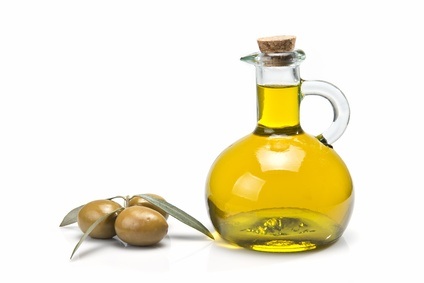
- If you think your olive oil is pure, organic and unadulterated? Think again. Olive oil fraud is revealed after new research discovered that it may be mislabeled, misrepresented and impure.
- What is Adulteration?
- It is the the most criminal type of fraud.
- Olive oil is mixed, or replaced with cheaper oils like sunflower, palm and soy.
- You won’t find this information on the label, as many people with food allergies have found out the hard way.
- What is the Extra-Virgin Fraud?
- In a 2010 study at U.C. Davis, 69 percent of imported olive oils and 10 percent of California olive oils failed to meet U.S. standards for “extra virginity.” This means they were of low quality, had oxidized, or had been adulterated with cheaper oils.
- The list of brands that failed:
- Whole Foods 365 100% Italian
- Rachel Ray
- Safeway Select
- Newman’s Own Organics
- Colavita
- Bertolli
- Filippo Berio
- Pompeian
- What should you do?
- There are pure olive oils and you need to take a closer look next time you shop for one.
- Here are 7 tips to help you avoid olive oil fraud:
- Select small and independent producers
- Look for the 3 “Us”: Unfiltered, Unpressed, Unheated
- Olive oil must be certified organic
- Should be in a dark glass bottle
- Should have a “best by” date
- Check for a harvest or milling date
- If you live in the United States get a California-produced oil
- NOTE: Take the time to train your palate, by tasting olive oils whenever you can. Once you learn the difference between real and fake, you’ll never go back to the questionable oil.
- Want to know more? Read Extra Virginity: The Sublime and Scandalous World of Olive Oil by Tom Mueller.
-
- We recommend Living Tree Community Foods as a reputable source for a good organic and raw olive oil.
- Note: None of the information in our website is intended to diagnose, treat, cure or prevent any illness or disease. The content on our website is for



















2 Comments